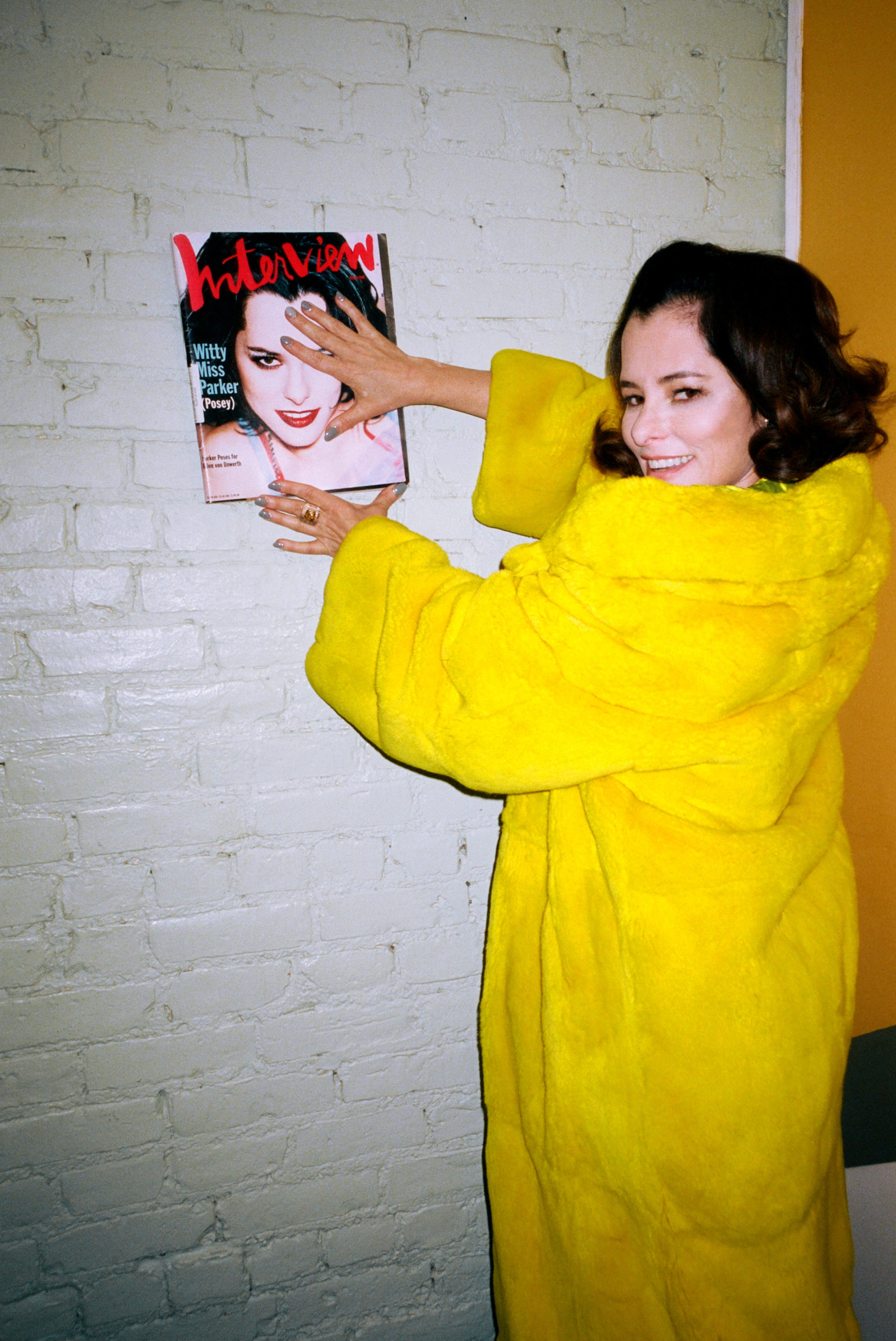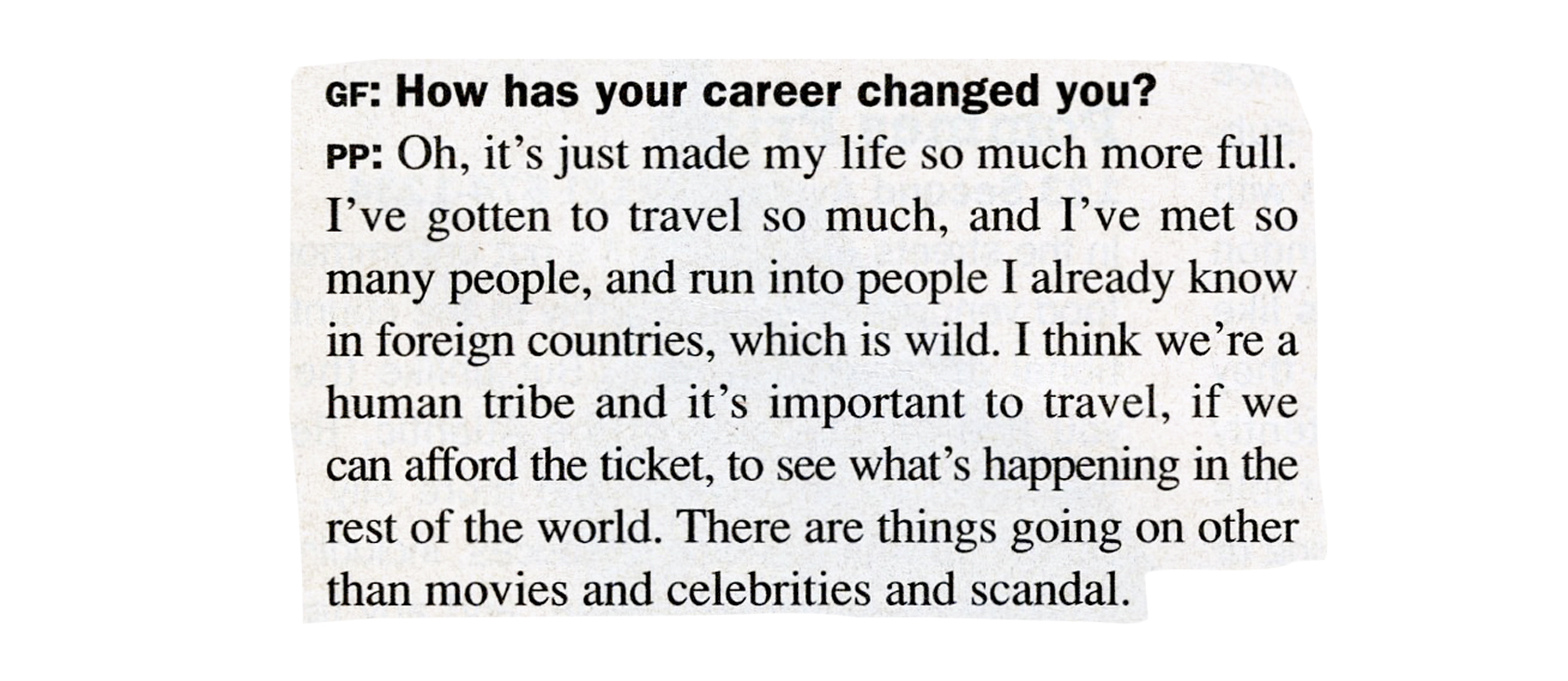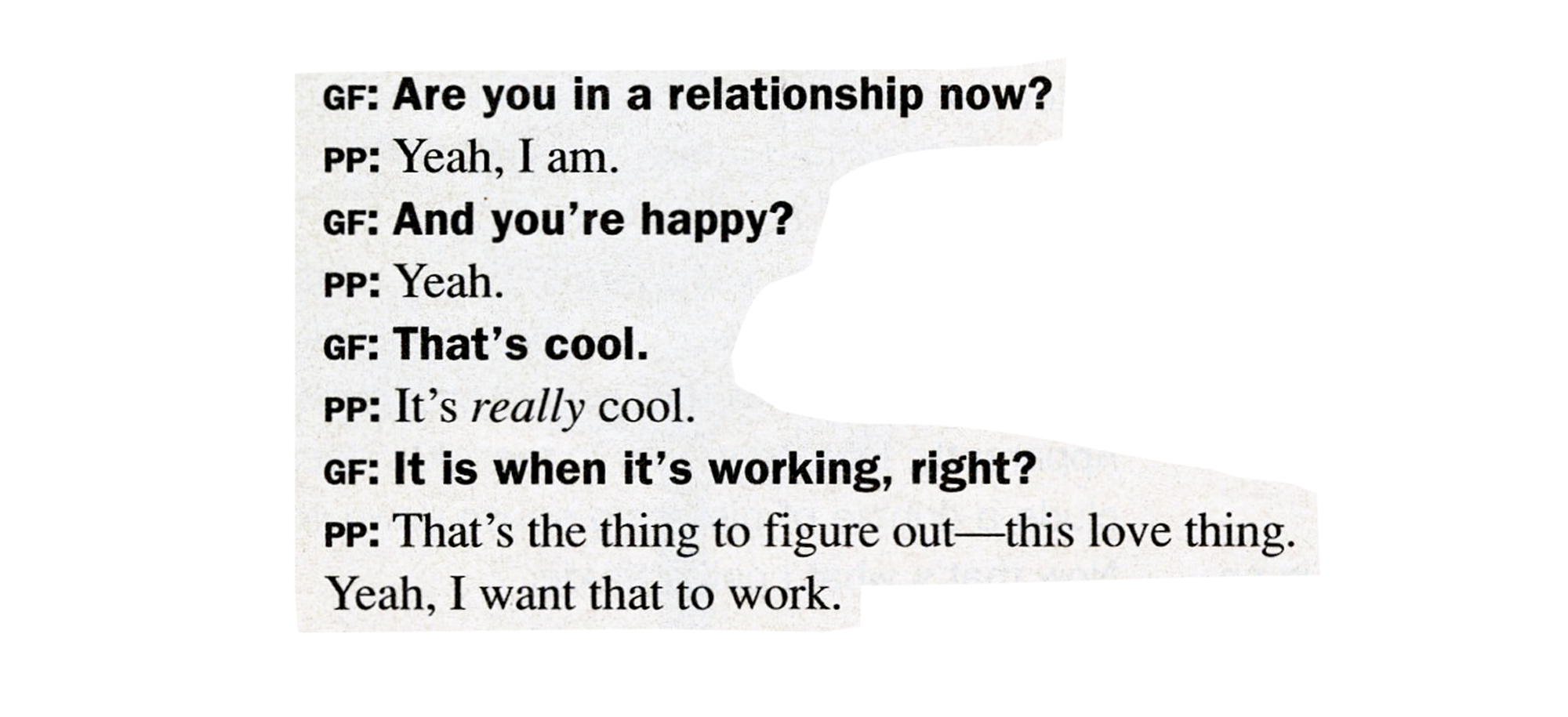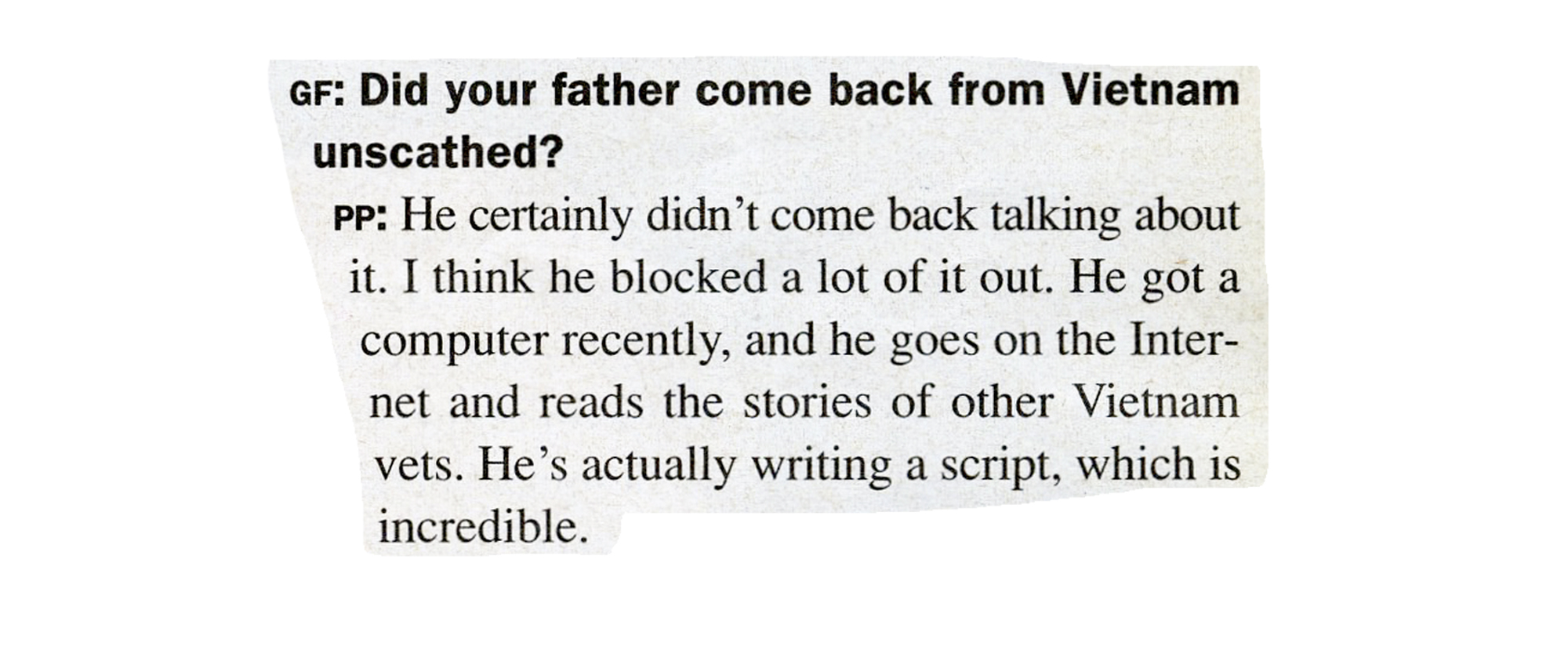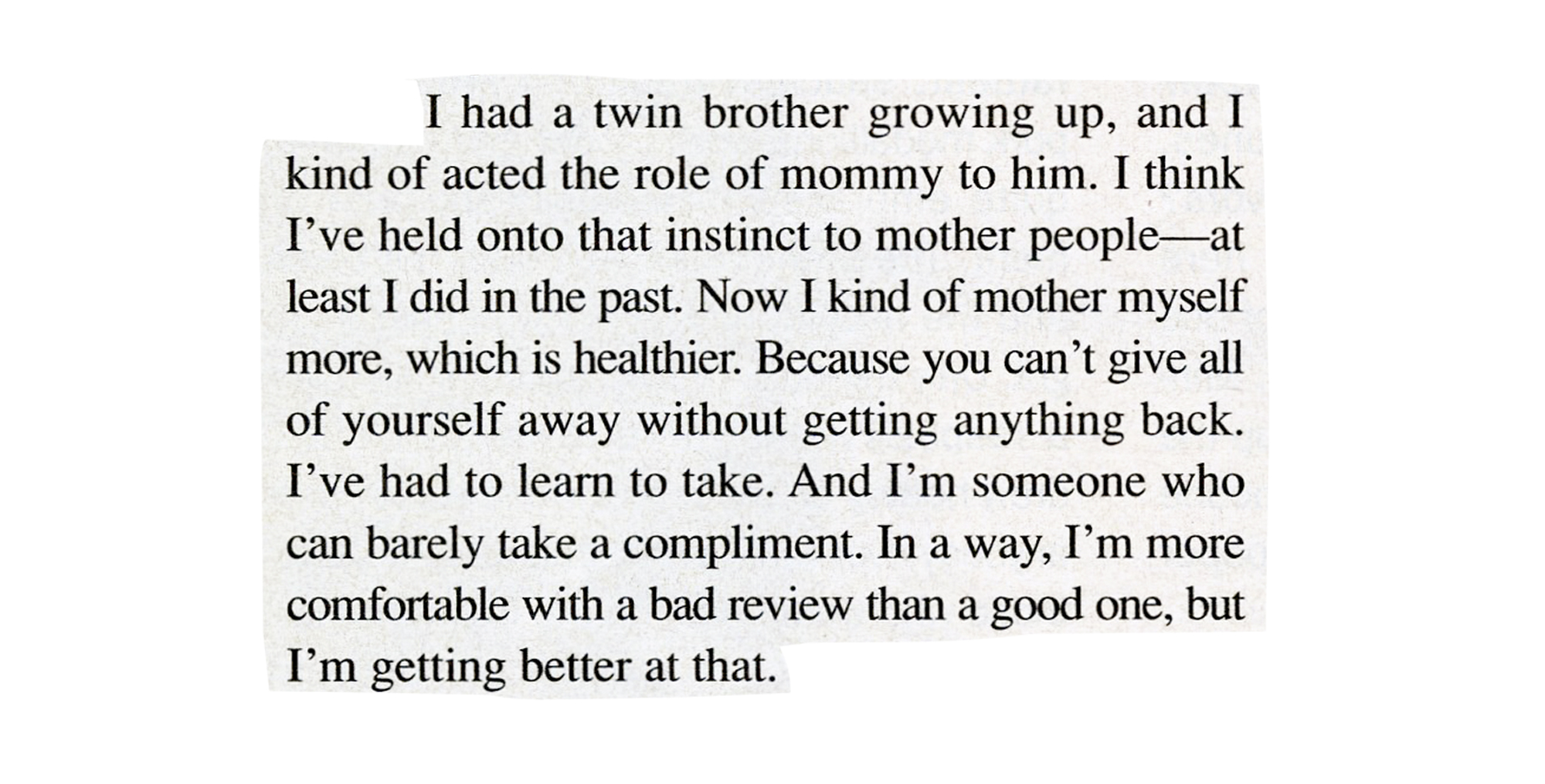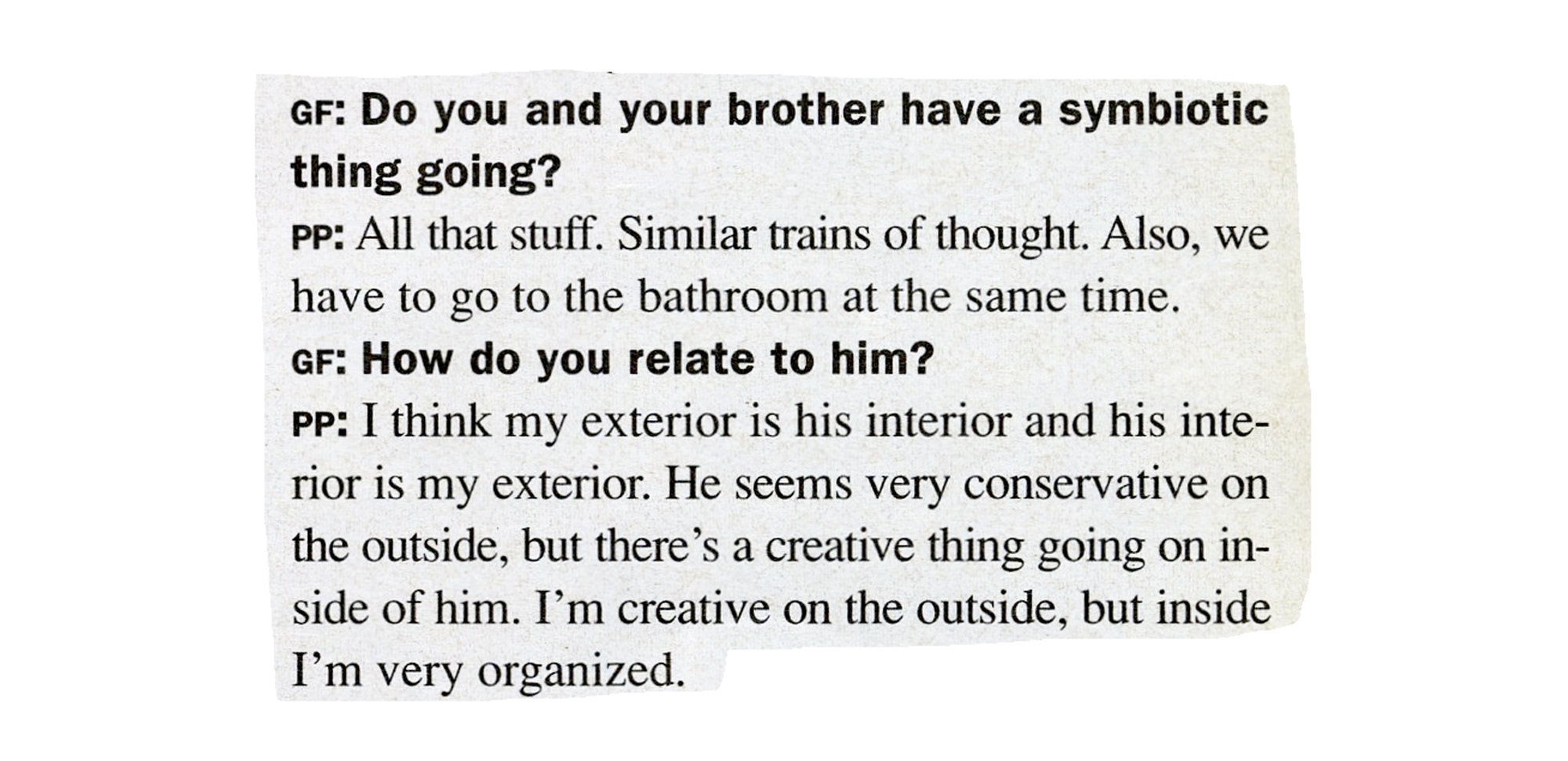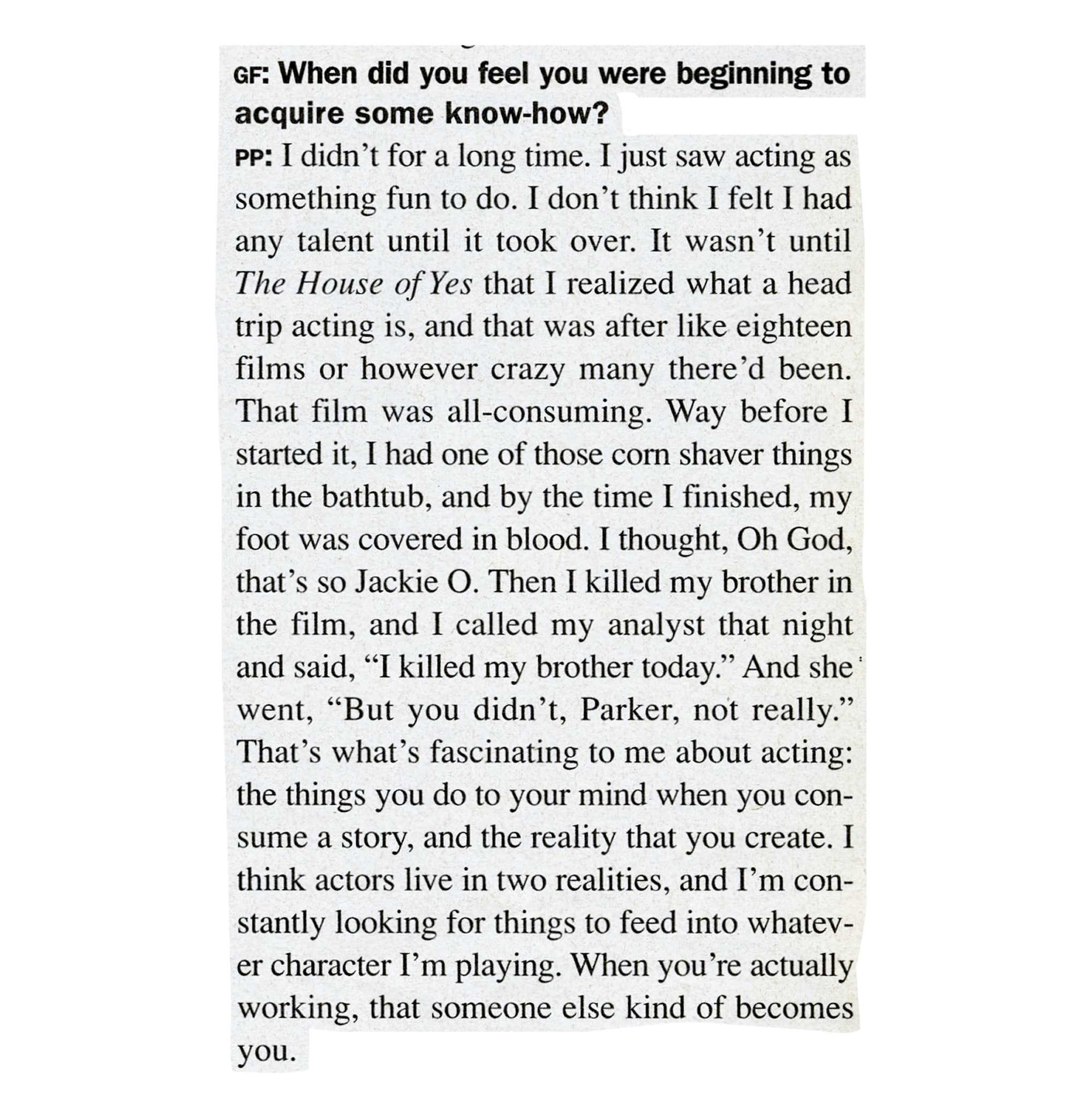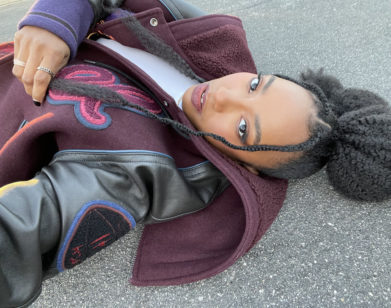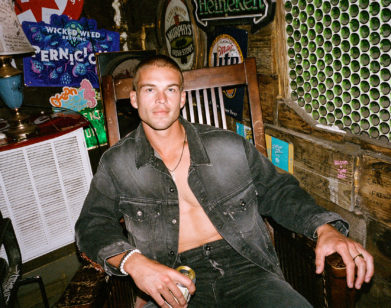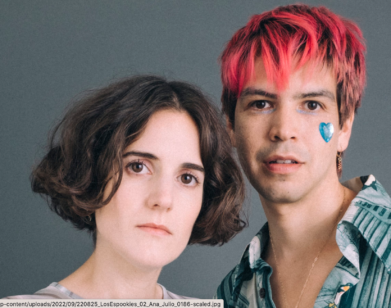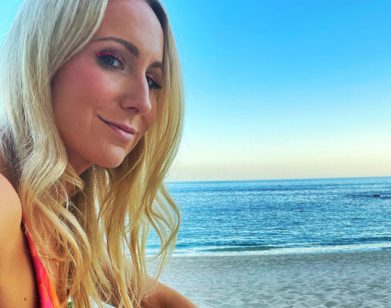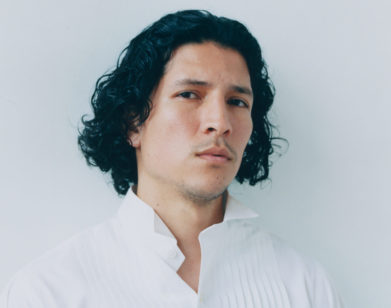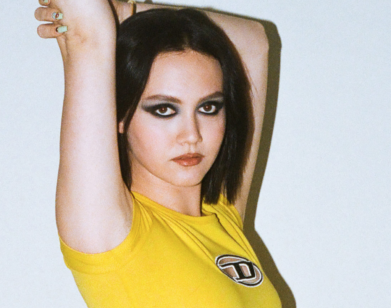on second thought
Parker Posey on New York in the ’90s: “There Was Freedom and Silliness”
At the height of her indie phase, Parker Posey appeared on the cover of this magazine and shared her idiosyncratic worldview with the writer Graham Fuller. Years (and many, many roles) later, the Southern-bred actor, who can next be seen on the HBO Max true-crime thriller The Staircase, shows that while a lot in the world has changed, she remains her same, unique self.
———
“Do you think Graham Fuller would take me to a movie? We can be friends, right?”
———
“My dad had PTSD and used humor and writing to try to work it all out. He came back from the war throw- ing us in the air, giddy with love, sad he missed our first three years, and shook that it could’ve been different. He was a master at taking center stage wherever he was—he brought remote fart machines to the airport. He could be domineering and emotionally absent. He drank and liked to party; my parents were fab in the ’70s. He read my book and loved it— I handled his narcissism with enough humor to make him a character he’d approve of. I didn’t divulge how hard he was on us. For 20 years, he had prostate cancer from Agent Orange in Vietnam, which was tough on our family, to say the least. He passed four months after the book was published. This I’m most blessed for.”
———
“Fame was an adjustment. I had no reference point for it. And I loved being a New Yorker, making movies with friends. There were no cameras to record—there was freedom and silliness. When I was sensitive to being talked about or looked at and not talked to, I’d isolate or regroup. A lot of folks are envious of fame, especially now, but I’ve grown to handle it.”
———
“‘Southern women create alternate realities’ comes from Tennessee Williams’s Blanche DuBois, when she said, ‘I don’t want realism. I want magic!’ She created this identity for herself, this guise that hid all the pain and dark secrets. Nonnie was like Blanche. The first time I was in Interview, the caption was, ‘Golly, it’s Holly Golightly,’ from Truman Capote’s Breakfast at Tiffany’s. Ingrid [Sischy, Interview’s former editor in chief] really got me as a Southerner in New York City.”
———
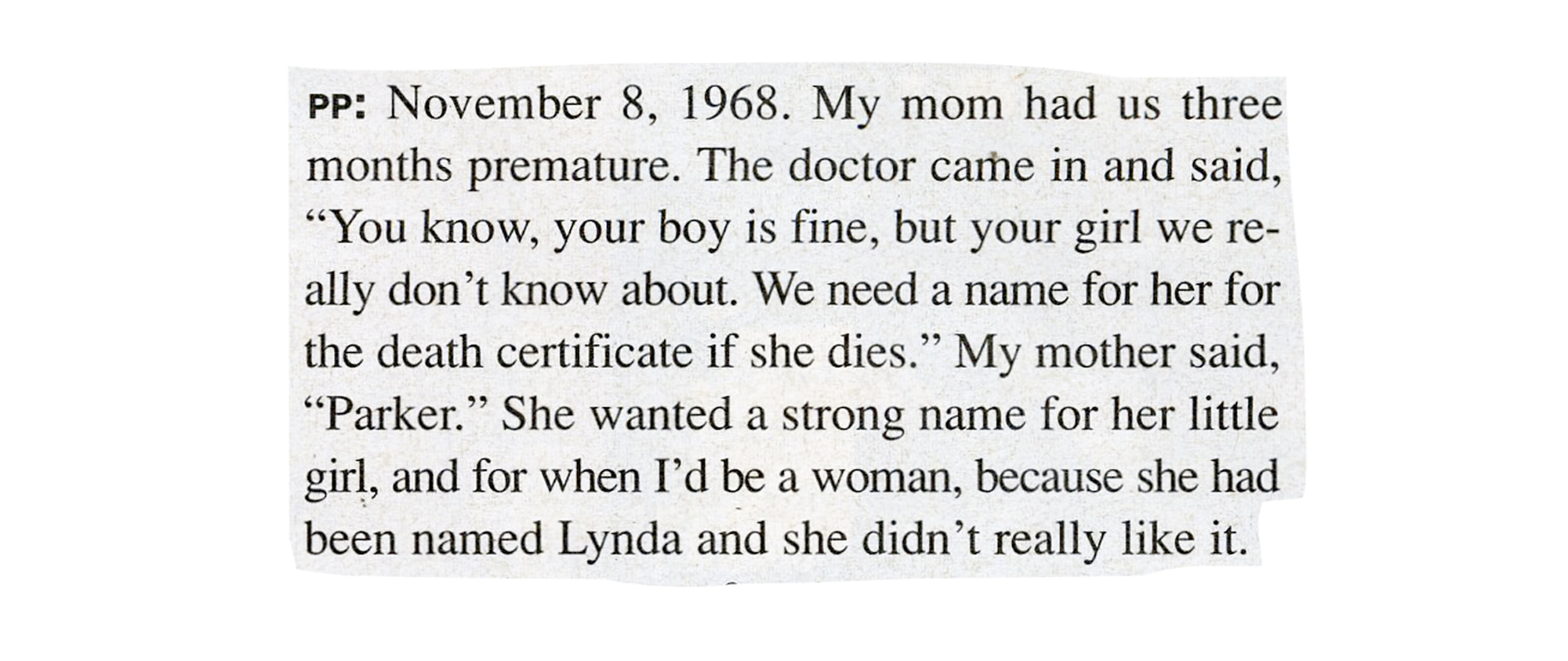
“This makes me laugh. ‘When I’d be a woman.’ I’m still such a woman-child. I’d hear this dramatic story every birthday—high-stakes from the get-go, and another reason I became an actor, actress, storyteller. It all comes from my family, my ancestors.”
———
“There’s a great podcast called The Plot Thickens, where Peter Bogdanovich talks about how much easier it was to be a failure in L.A. than a success. I was lucky to meet him in person and he was supportive and fun—a real mensch.”
———

“Napping, resting, or meditating are good for refueling or downloading and getting back to a brighter, lighter self. I’ve always whirled with ideas and energy I like to share with others, then I relax and get neutral again. I’m a lot less sulky and less tormented than I used to be. I get anxious and feel oh so alone, but what actress doesn’t?”
———
“My advice to young creative people is not to take rejection personally because evolution can happen through art, and there are new modes of creativity to be found and nurtured. There’s a wider net and reach to have, collectively, with other like-minded new thinkers and makers. So an attitude about your art is important. As a young person I was bored with the status quo because I wanted to create, then I got disheartened when it commodified. I liked the homemade Cabbage Patch doll more than the commercially made ones.”
———
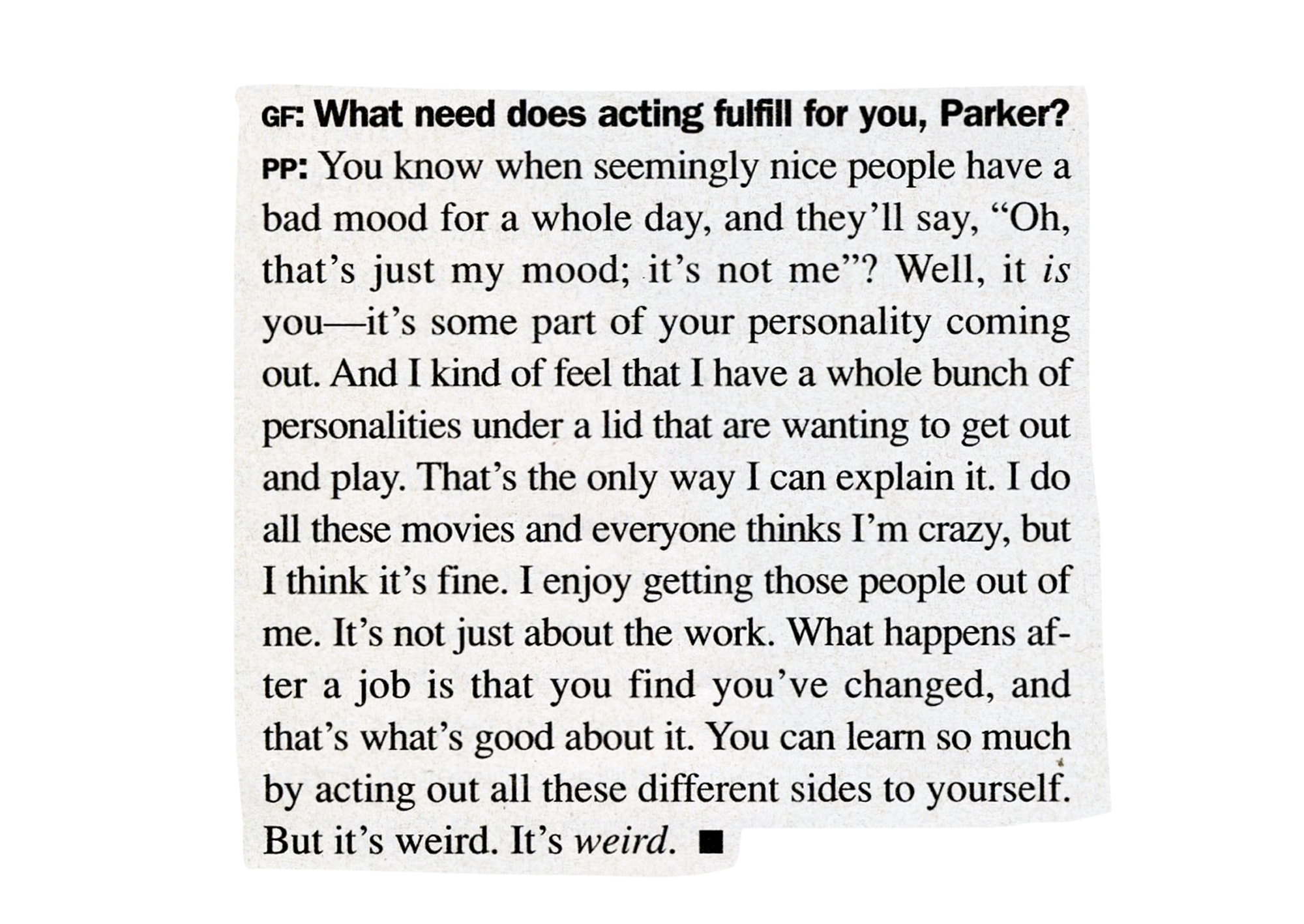
“What I’m hearing in this answer is guilt and impostor syndrome. I remember being asked why I worked so much and doubted that Sam Rockwell was being asked the same. Charlie Rose asked me the same question and I felt guilt, although when we went to commercial he’d confided he’s being creative all the time, having ideas constantly. Acting fulfills the person I am, not with a bunch of personalities, but an artist who taps into archetypes making them her own to serve a story. It’s not weird, it’s just authentic.”
———
“We were both good mimics as kids. It’s funny how internally I take Graham’s question about relating to him. It shows the complications twins can have. I’m an artist, because I developed a way to make a context for the complications my family gave me. I relate to my family as an artist, they teach me and have given me so much material. Especially the women in my family.”
———
“That film was all-consuming. That’s what’s fascinating to me about acting: the things you do to your mind when you consume a story, and the reality you create. I think actors live in two realities, and I’m constantly looking for things to feed into whatever character I’m playing. When you’re actually working, that someone else kind of becomes you. Method acting!”
———
Hair by Ledora Francis using Renée Furterer
Makeup by Kristi Matamoros using Chanel Beauty at Art Dept.
Production by Born Artists
Manicure by JazzStyle using Chanel Beauty
Fashion Assistants Evan Dombkowski and Karla Lopez, Hair Assistant Natalia Borges

